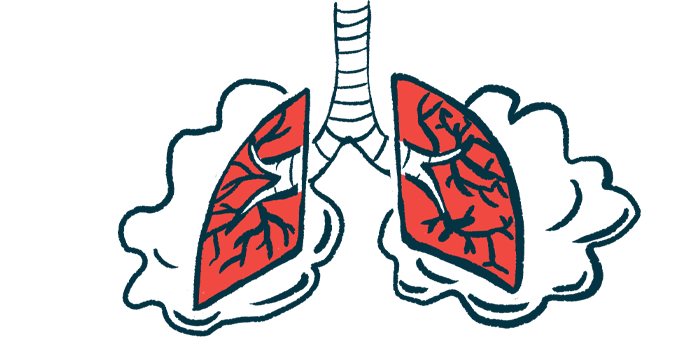Acthar Gel effective in sarcoidosis patients on standard therapy
Study supports therapy as safe and well tolerated in long-term use

About six months with Acthar Gel were associated with greater therapeutic benefits than a placebo in people with pulmonary sarcoidosis receiving standard-of-care therapies, including glucocorticoids, data from a Phase 4 trial show.
The benefits were sustained in those who continued treatment in an extension phase and became evident in those who switched from a placebo to Acthar Gel in that phase. It also let patients more rapidly discontinue glucocorticoids, which have harmful side effects over the long term.
Larger trials will allow researchers to “further confirm the efficacy of [Acthar Gel] in long-term management of pulmonary sarcoidosis,” the scientists wrote in “Results From a Phase 4, Multicenter, Randomized, Double-Blind, Placebo-Controlled Study of Repository Corticotropin Injection for the Treatment of Pulmonary Sarcoidosis,” which was published in Pulmonary Therapy.
A feature of pulmonary sarcoidosis is the abnormal formation of small clumps of inflammatory cells in the lungs, leading to inflammation and lung tissue scarring.
Oral glucocorticoids, such as prednisone, remain the standard, first-line choice to reduce inflammation and protect lung function in pulmonary sarcoidosis. Their long-term use is “associated with toxicity and adverse events,” underscoring that alternative therapies are needed.
Mallinckrodt Pharmaceuticals’ Acthar Gel is a naturally sourced mixture of compounds similar to corticotropin, a hormone thought to suppress inflammation and immune responses through several mechanisms.
Delivered via injection under the skin or into the muscles, it’s approved in the U.S. for pulmonary sarcoidosis. In Europe it’s recommended, but used off-label for this indication.
The Mallinckrodt-sponsored Phase 4 PULSAR clinical trial (NCT03320070) was designed to test Acthar Gel in up to 100 adults with pulmonary sarcoidosis on stable prednisone treatment.
The researchers also sought to validate several measures for future trials, including lung function and lung imaging tests, patient-reported outcomes, glucocorticoid tapering, and the sarcoidosis treatment score (STS), a new composite that combines data from all these measures, with higher scores indicating greater improvement.
The first patient was recruited in 2018, but the study was stopped because of low enrollment resulting from the COVID-19 pandemic.
A total of 55 participants (29 men, 26 women) with a mean age of 54.2 years were included. All presented lung symptoms and other affected organs included the bones/joints (23.6%), skin (25.5%), eyes (18.2%), and liver (18.2%).
Gains with Acthar Gel over placebo
Participants were randomly assigned to receive an injection of Acthar Gel (27 patients) or a placebo (28 patients) twice a week for 24 weeks (nearly six months).
Those who completed the placebo-controlled phase were able to join the open label extension (OLE), where all received Acthar Gel for 24 weeks. Of the 47 patients who joined the OLE, 40 — 17 previously given Acthar Gel, 23 a placebo — completed the extension.
Compared with those given a placebo, a higher proportion of Acthar patients saw their lung function improve by 5% or greater at week 24, as measured by forced vital capacity (FVC, 37% vs. 25%) and diffusing capacity for carbon monoxide (DLCO, 18.5% vs. 14.3%).
Lung imaging scans showed no major changes in most participants at 24 and 48 weeks.
At 24 weeks, however, scan-based lung improvements were detected only in the Acthar group (two patients) and lung worsening only in the placebo group (four patients). At 48 weeks, one Acthar-treated patient and 10 who switched to Acthar showed lung improvements.
Acthar-treated patients also showed a greater mean score improvement in the patient-reported King’s Sarcoidosis Questionnaire, indicating better general health, relative to those given a placebo at 24 weeks (by 9.4% vs. 2.3%). This group difference diminished at 48 weeks.
Self-reported fatigue lowered in patients always on Acthar both at 24 and 48 weeks, while those originally assigned to a placebo showed worsened fatigue at both times.
Moreover, no group differences in the weekly mean prednisone dose or equivalent daily dose were observed at either time. A larger proportion of Acthar-treated patients discontinued prednisone without a relapse at 24 weeks compared with the placebo group, however.
At the end of the OLE, the rate of prednisone discontinuation without a relapse was comparable between the groups.
The mean STS at 24 weeks in the Acthar group was two times higher than the placebo group (mean, 1.4 vs. 0.7), suggesting a greater clinical improvement. At the end of the OLE, patients originally assigned to Acthar maintained a higher mean STS than those who switched from a placebo (mean, 1.8 vs. 0.9).
The proportion of STS responders — those with a score increase of at least two points — was higher in the Acthar group than the placebo group (59.3% vs. 46.4%). At the end of the OLE, the responder rate increased to 52% among those who switched from a placebo and dropped to 40.9% among those always on Acthar.
Side effects of Acthar Gel
Side effects were reported by more than 92% of patients in either group during the placebo-controlled phase, with the most common being headache and fatigue.
A greater proportion of patients always on Acthar had at least one side effect during the OLE relative to those who switched (81.8% vs. 68%), cough being most frequent concern (10.6%).
Side effects led to discontinuing treatment for two patients during the placebo phase and for four in the OLE.
A posterior analysis suggested patients with sarcoidosis for less than five years, those with worse lung function (DLCO of 60% or less or FVC up to 70%) at the trial’s start, and those with multi-organ involvement at the start were more likely to respond to Acthar.
“The results of this study support that [Acthar Gel] was safe and well tolerated over long-term use and that the data trends suggest greater improvement with [Acthar Gel] versus a placebo in various efficacy endpoints,” the researchers wrote. The findings also support STS as an efficacy goal in larger trials.








